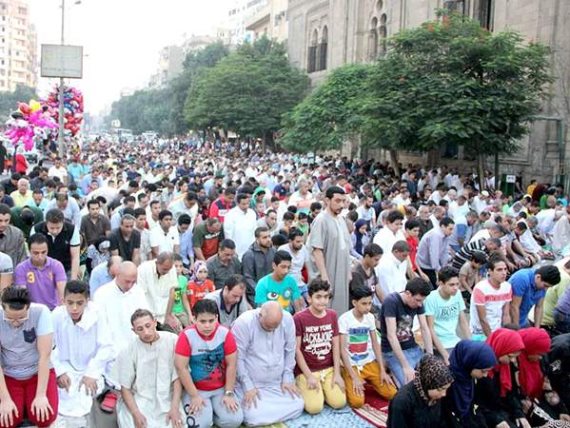Since Ramadan is regarded by Muslims as a time for realizing self-restraint and strengthening conviction in God, some mothers utilize the opportunity to teach their children to fast, even though Muslim children are not obligated to before reaching the age of maturity.
During Ramadan, the ninth month on the Islamic calendar, Muslims do not just abstain from food, drink and sexual activity from dawn to sunset. They also refrain from doing wrong deeds, develop moral values and increase acts of worship through reading the Quran and performing non-compulsory prayers, such as the nighttime taraweeh prayer specific to Ramadan.
Hadir Hussein, a banker at HSBC, encourages her 8-year-old son to fast for half a day and avoid over-eating before iftar (breakfast), so that he can join his family while breaking the fast.
“I will let him fast two additional hours every coming Ramadan until he reaches twelve years,” Hussein says.
Hussein believes that this is the best way to prepare her son for future fasts. “Getting used to abstaining from food gradually will make it easier for him to fast when the suitable time comes,” she asserts.
“Fasting at young age instills in children the true spirit of Ramadan,” says Lamia Zakry, 33, who has three children. “Children come to know that they are not allowed to commit any sins, such as lying, and appreciate the blessing of food and not waste it.”
However, other mothers like Soheir Abdel Baqy prefer to teach their children how to get closer to God during Ramadan without fasting.
“My daughter’s health is delicate, so I don’t train her to fast before it is required, since it is not obligatory.” Abdel Baqy says, though she is keen on teaching her little girl how to live by the teachings of Islam.
“I teach her the importance of charity, read for her some Quranic verses and make her join the whole family during iftar to feel the spiritual atmosphere of Ramadan,” she explains.
Gehan Omar, a household wife, says that her two children never practiced fasting before reaching maurity, as they used to live in England.
“A 17-hour-day fast would have been very arduous for kids to experience, so I let them fast only when they became 12,” she explains.
Omar, who has a 12-year-old daughter and 14-year-old son, says that she has felt the difference of the Ramadan atmosphere since her family returned to settle in Egypt.
“Fasting in a Muslim-majority country is a lot easier, as everyone around you is fasting as well. Children are able to leave school earlier, which definitely encourages them to join others.”




